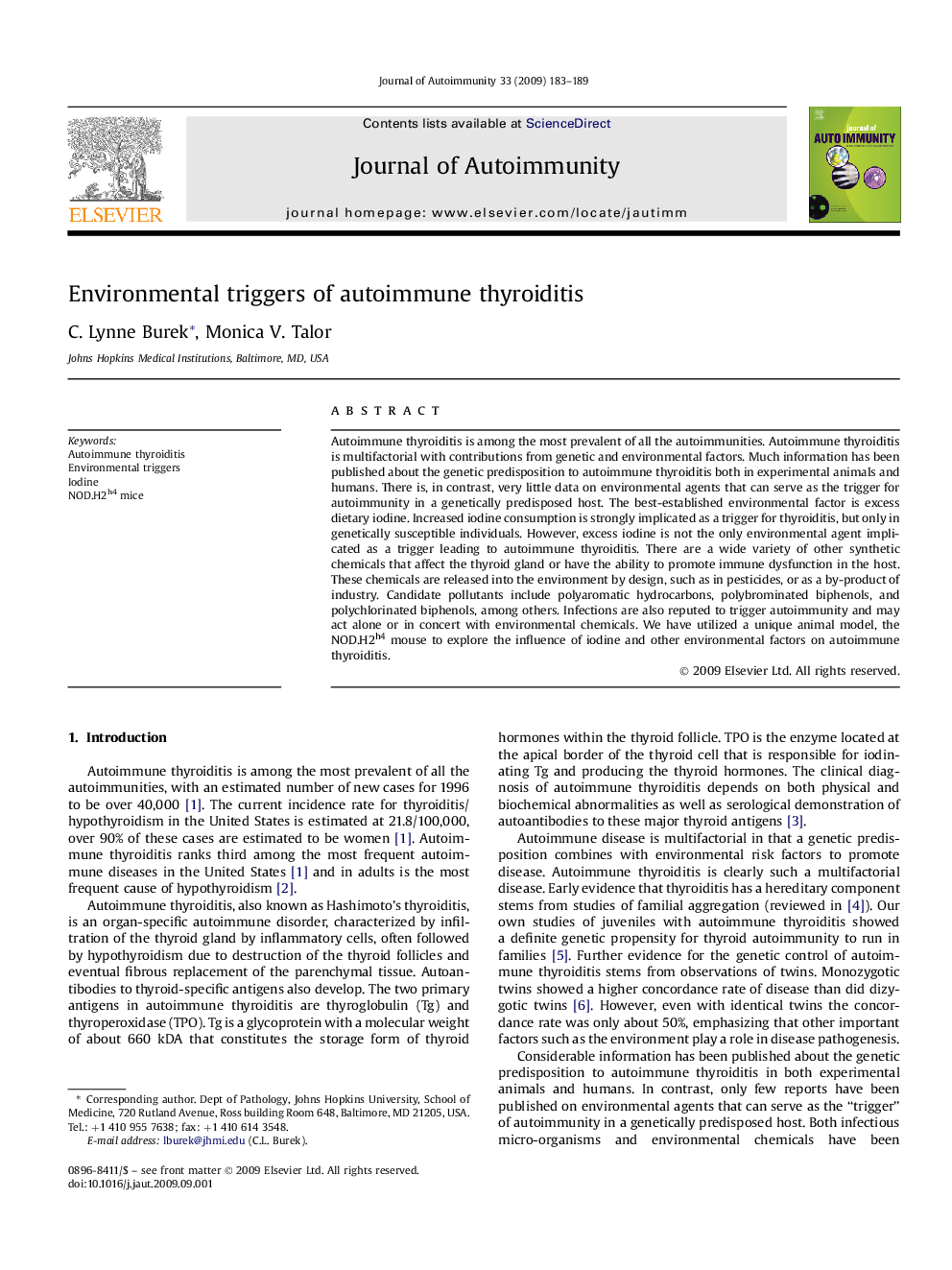| Article ID | Journal | Published Year | Pages | File Type |
|---|---|---|---|---|
| 3368202 | Journal of Autoimmunity | 2009 | 7 Pages |
Autoimmune thyroiditis is among the most prevalent of all the autoimmunities. Autoimmune thyroiditis is multifactorial with contributions from genetic and environmental factors. Much information has been published about the genetic predisposition to autoimmune thyroiditis both in experimental animals and humans. There is, in contrast, very little data on environmental agents that can serve as the trigger for autoimmunity in a genetically predisposed host. The best-established environmental factor is excess dietary iodine. Increased iodine consumption is strongly implicated as a trigger for thyroiditis, but only in genetically susceptible individuals. However, excess iodine is not the only environmental agent implicated as a trigger leading to autoimmune thyroiditis. There are a wide variety of other synthetic chemicals that affect the thyroid gland or have the ability to promote immune dysfunction in the host. These chemicals are released into the environment by design, such as in pesticides, or as a by-product of industry. Candidate pollutants include polyaromatic hydrocarbons, polybrominated biphenols, and polychlorinated biphenols, among others. Infections are also reputed to trigger autoimmunity and may act alone or in concert with environmental chemicals. We have utilized a unique animal model, the NOD.H2h4 mouse to explore the influence of iodine and other environmental factors on autoimmune thyroiditis.
